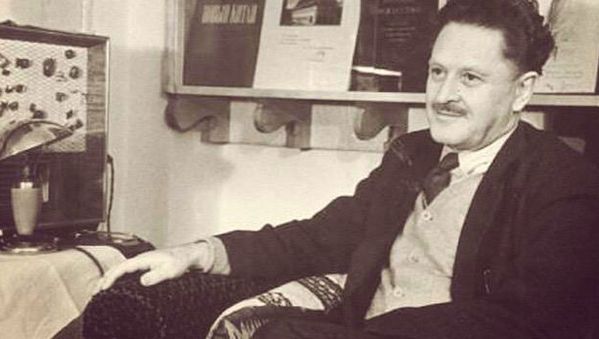Nazım Hikmet, one of the greatest poets of Turkish literature, is also known for his complex love life. Love occupies a significant place in both his life and poetry. His loves intertwine both personal and social themes. Understanding Nazım Hikmet’s love life is almost equivalent to understanding his poetry because love in his work is not only an individual experience but also a means of expressing the human condition.
Nazım Hikmet’s first great love was Nüzhet Hanım, whom he met in his youth. Nüzhet Hanım was a woman he got to know while studying at the Naval Academy, and she left a deep mark on his life. Their relationship carries the enthusiasm of young love. Nüzhet’s father opposed the relationship and tried to distance young Nazım, but this love left its traces in Nazım’s poetry. In his poems from this period, the romanticism and youthful excitement of Nazım are evident.
In the poems he wrote for Nüzhet Hanım, Nazım reflects the passions and emotions of a young man. The reflection of this love appears as naive romanticism in his early works.
One of the most important figures in Nazım Hikmet’s love life is undoubtedly Piraye Hanım. Nazım and Piraye’s love was a deep and passionate relationship that was tested by many challenges. In 1935, Nazım married Piraye, and their relationship left deep traces in his poetry. Nazım frequently expressed his love and longing for Piraye, especially in the poems he wrote during his time in prison.
Nazım’s poems for Piraye reflect the depth of his love and longing. Even under the harsh conditions of prison, his love for her remains unshaken. In particular, in the poem Sana Dair, Nazım’s emotional attachment to Piraye and the longing for the time spent with her is deeply felt:
“Seni düşünmek güzel şey, ümitli şey,
Dünyanın en güzel sesinden
En güzel şarkıyı dinlemek gibi bir şey…
Fakat artık ümit yetmiyor bana,
Ben artık şarkı dinlemek değil,
Şarkı söylemek istiyorum.”
In this poem, while expressing his longing for Piraye, Nazım also shows how love gave him joy and the will to live. Piraye became a figure who inspired Nazım and kept his spirits high even during his hardest times. However, this great love was shaken due to Nazım’s relationships with other women in his life.
Another significant woman in Nazım Hikmet’s life was Münevver Andaç. While still married to Piraye, Nazım met Münevver Hanım and fell in love with her. This relationship marked the beginning of one of the most complicated periods in Nazım’s love life. Despite his deep love for Piraye, his passion for Münevver Hanım placed Nazım in a dilemma. Münevver brought new excitement into Nazım’s life, but this love also created significant turmoil.
In the poems he wrote during this period, his love for Münevver and his feelings of guilt toward Piraye often intertwine. In his poem Tahir ile Zühre, while expressing the pure and innocent side of love, he also reflects on his inner conflicts. This poem summarizes the chaos and inner contradictions in Nazım’s love life:
“Tahir olmak da ayıp değil,
Zühre olmak da,
Hatta sevda yüzünden ölmek de ayıp değil…”
In this poem, we see a deep philosophical stance regarding the place of love in human life and Nazım’s surrender to love. For him, love is both a salvation and a source of chaos. Nazım Hikmet’s last great love was Vera Tulyakova, a Russian theater artist. Nazım met Vera while in exile in the Soviet Union during the 1950s, and he fell in love with her. This love was the most significant emotional experience in the final years of Nazım’s life. Vera brought a breath of fresh air and a sense of renewal into Nazım’s life. After the complicated relationships with Piraye and Münevver, Vera became a refuge for him. Nazım wrote many poems for Vera, and in his poem Saman Sarısı, he expresses his love for her, her place in his life, and the peace his last love brought him:
“Saman sarısı bir küçücük kız çocuğu,
Bir küçük kız,
Ufacık elleriyle tuttun ellerimi…”
This poem describes the tranquility Nazım found in his last love and Vera’s place in his life. Vera existed in Nazım’s life both as a romantic love and an intellectual partner. This love marks a period of peace and calm that followed the turbulent times in Nazım’s life.
Resources:
(Düşünbil Portakal, 2016)
(Nermin Demir, 2020)
(Muhsin Durucan, 2023)

